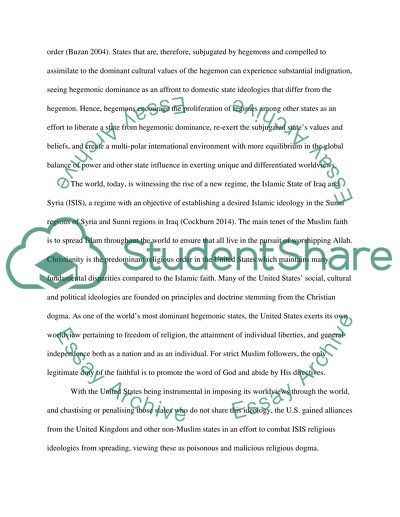Cite this document
(“How might hegemons encourage the proliferation of regimes among other Essay”, n.d.)
How might hegemons encourage the proliferation of regimes among other Essay. Retrieved from https://studentshare.org/social-science/1667241-how-might-hegemons-encourage-the-proliferation-of-regimes-among-other-states
How might hegemons encourage the proliferation of regimes among other Essay. Retrieved from https://studentshare.org/social-science/1667241-how-might-hegemons-encourage-the-proliferation-of-regimes-among-other-states
(How Might Hegemons Encourage the Proliferation of Regimes Among Other Essay)
How Might Hegemons Encourage the Proliferation of Regimes Among Other Essay. https://studentshare.org/social-science/1667241-how-might-hegemons-encourage-the-proliferation-of-regimes-among-other-states.
How Might Hegemons Encourage the Proliferation of Regimes Among Other Essay. https://studentshare.org/social-science/1667241-how-might-hegemons-encourage-the-proliferation-of-regimes-among-other-states.
“How Might Hegemons Encourage the Proliferation of Regimes Among Other Essay”, n.d. https://studentshare.org/social-science/1667241-how-might-hegemons-encourage-the-proliferation-of-regimes-among-other-states.


